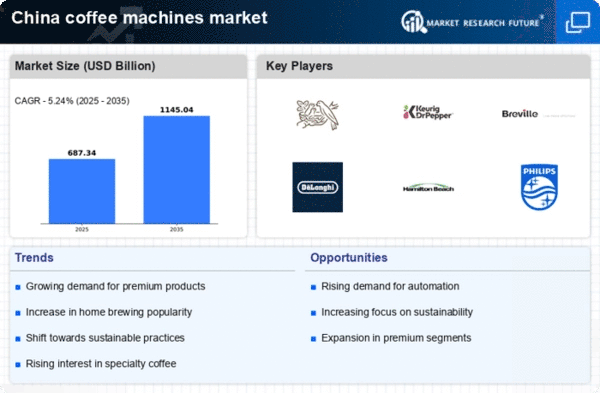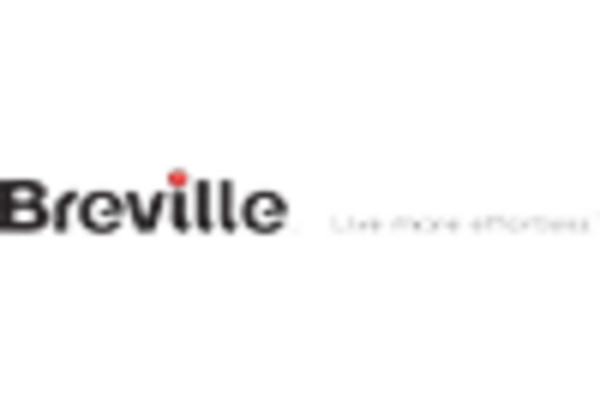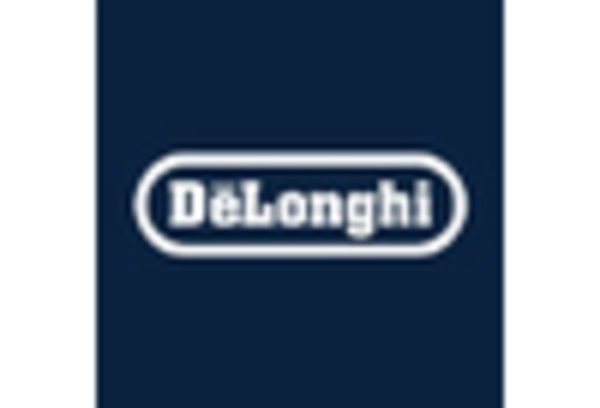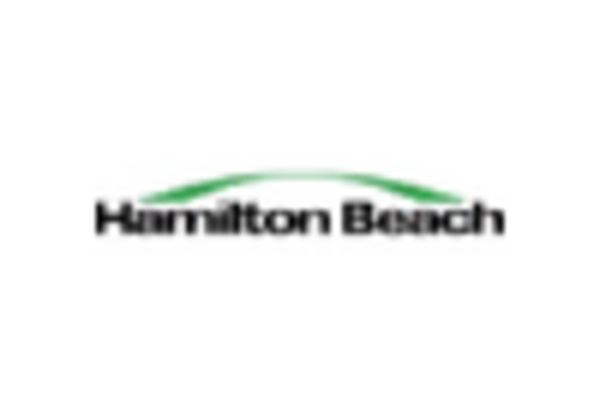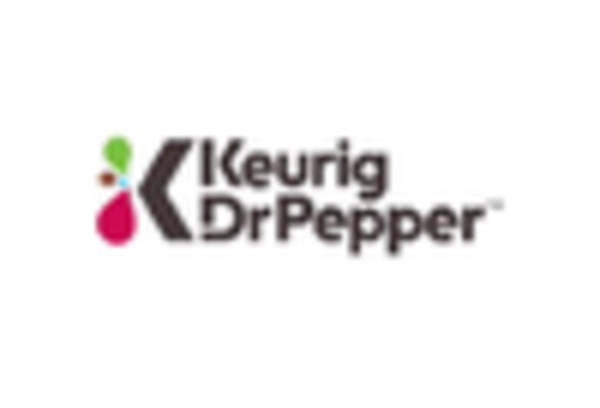Rising Disposable Income
The increase in disposable income among the Chinese population is a pivotal driver for the coffee machines market. As consumers gain more financial freedom, they are more inclined to invest in premium coffee machines for home use. This trend is particularly evident in urban centers where the average disposable income has seen a rise of about 10% annually. The willingness to spend on high-quality coffee machines reflects a broader shift towards premiumization in consumer goods. Furthermore, the coffee machines market is likely to benefit from this trend as consumers seek to replicate café-quality beverages at home. The growing middle class in China is expected to further fuel this demand, making it a crucial factor for market expansion.
Growing Urbanization and Coffee Culture
The rapid urbanization in China is significantly influencing the coffee machines market. As more individuals migrate to urban areas, there is a noticeable shift in lifestyle preferences, with coffee consumption becoming a staple in daily routines. The increasing number of cafes and coffee shops in cities reflects this trend, leading to a heightened demand for coffee machines. In 2025, the coffee consumption in urban areas is projected to rise by approximately 15%, indicating a robust market potential. This urban coffee culture not only drives sales of traditional coffee machines but also encourages the adoption of advanced models that cater to the evolving tastes of consumers. Consequently, the coffee machines market is likely to experience substantial growth as urban dwellers seek convenient and high-quality coffee solutions.
Influence of Social Media and Marketing
The role of social media in shaping consumer behavior cannot be underestimated in the coffee machines market. Platforms like WeChat and Douyin are increasingly being utilized for marketing coffee products, creating a buzz around new machine launches and coffee trends. Influencers and coffee enthusiasts share their experiences, which significantly impacts purchasing decisions. In 2025, it is projected that social media marketing will drive approximately 20% of sales in the coffee machines market. This trend highlights the importance of digital presence and engagement in reaching potential customers. As brands leverage social media to connect with consumers, the coffee machines market is likely to witness a surge in demand driven by effective online marketing strategies.
Health Consciousness and Wellness Trends
An increasing awareness of health and wellness among Chinese consumers is shaping the coffee machines market. As individuals become more health-conscious, there is a growing preference for coffee products that offer health benefits, such as organic or specialty blends. This trend is likely to drive demand for coffee machines that can prepare healthier options, such as cold brew or espresso, which are perceived as more beneficial. In 2025, it is estimated that around 30% of coffee drinkers in China will prioritize health-oriented coffee products, thereby influencing their purchasing decisions regarding coffee machines. The coffee machines market must adapt to these evolving consumer preferences to remain competitive and relevant.
Technological Advancements in Coffee Machines
The coffee machines market is experiencing a wave of technological advancements that are reshaping consumer expectations. Innovations such as smart coffee machines, which can be controlled via mobile applications, are gaining traction among tech-savvy consumers. These machines offer features like customizable brewing settings and automated maintenance alerts, enhancing user experience. In 2025, it is anticipated that smart coffee machines will account for approximately 25% of total sales in the market. This shift towards technology-driven solutions indicates a growing demand for convenience and efficiency in coffee preparation. As manufacturers continue to integrate advanced technologies, the coffee machines market is likely to see increased competition and a broader range of product offerings.


